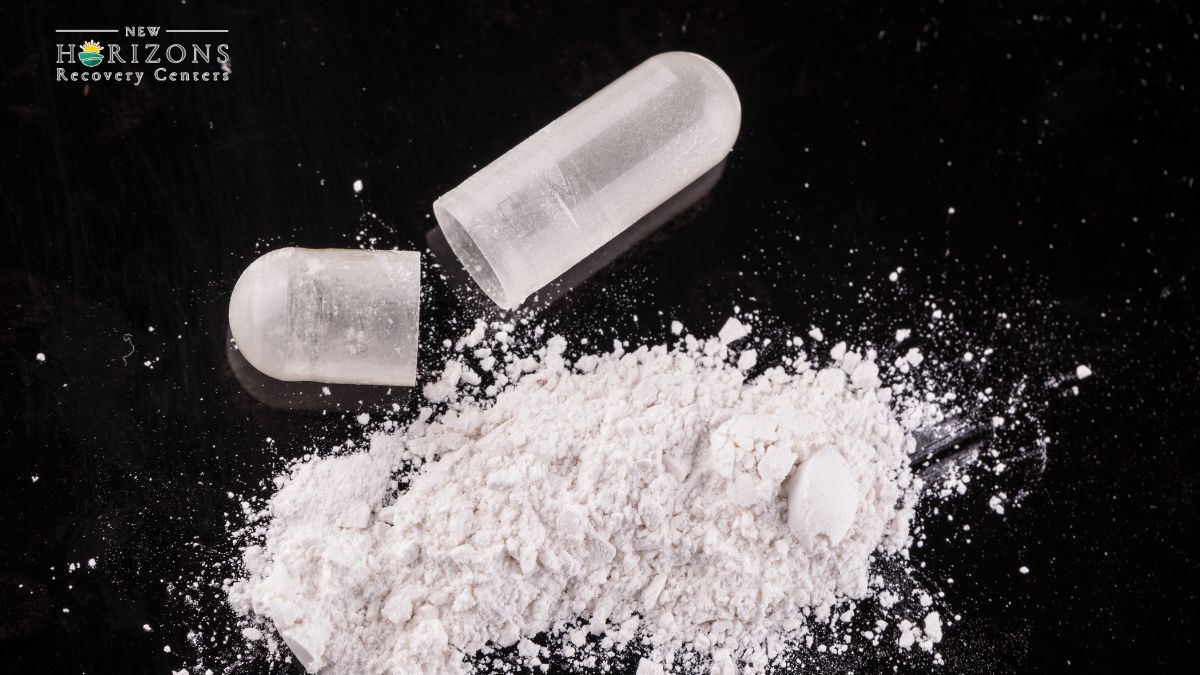Understanding Gratitude in Recovery
Gratitude plays a significant role in the journey of recovery, offering individuals a powerful tool for transforming their lives. It involves acknowledging and appreciating the positive aspects of life, even amidst the challenges and difficulties that may arise. In the context of recovery from addiction or other challenging situations, practicing gratitude can have a profound impact on one's emotional well-being and overall outlook on life.
Impact of Gratitude Practice
Gratitude in recovery helps individuals better handle negative emotions and memories from the past, acting as a healing salve and contributing to a sense of joy for breaking free from substance use. By shifting the focus towards gratitude, individuals can reframe their experiences and find solace in the progress they have made.
Practicing gratitude fosters a positive outlook on life by acknowledging and appreciating even the smallest good things. This positive mindset can serve as a powerful counterbalance to the negative thought patterns often associated with addiction. It helps individuals develop a new perspective and find meaning in their experiences, allowing them to move forward with hope and optimism.
Healing Power of Gratitude
Gratitude can enhance an individual's resilience in addiction recovery, helping them bounce back from setbacks and cravings more effectively. By focusing on the positives in their life, individuals can develop a greater capacity to overcome obstacles in their recovery journey. This resilience can be instrumental in preventing relapse and staying connected to recovery.
Moreover, gratitude plays a significant role in overall emotional well-being. It can aid in recovery from conditions such as substance misuse, coronary health events, and depression. Research suggests that gratitude can enable the development of personal strengths and resources that individuals can draw upon in their journey towards a healthier life. By cultivating a sense of gratitude, individuals in recovery can experience a boost in self-esteem, improved stress management (stress awareness in recovery), and enhanced life satisfaction.
Incorporating gratitude practices into the recovery journey can provide a solid foundation for healing and growth. It encourages individuals to embrace a positive mindset, appreciate the progress they have made, and develop a greater sense of purpose and fulfillment. By integrating gratitude into their daily lives, individuals can sustain their recovery and experience the promises of a healthier and more fulfilling future.
In the next sections, we will explore the specific benefits of gratitude in recovery, as well as practical strategies for incorporating gratitude into one's daily routine.
Benefits of Gratitude in Recovery
Incorporating gratitude into the recovery process can have profound benefits for individuals seeking to overcome addiction and build a healthier, more fulfilling life. By embracing a gratitude practice, individuals can experience a range of positive outcomes, including emotional resilience, stress reduction, and a more positive outlook.
Emotional Resilience
Gratitude plays a vital role in fostering emotional resilience for individuals in addiction recovery. By focusing on the positives in their life, individuals can develop a greater capacity to overcome setbacks and cravings effectively. Research indicates that a gratitude practice can enhance an individual's ability to bounce back from challenges, promoting a sense of strength and perseverance. By cultivating gratitude, individuals can shift their mindset and develop a more optimistic outlook, helping them navigate the ups and downs of their recovery journey.
Stress Reduction
Stress and anxiety are common challenges faced by individuals in recovery. Gratitude can serve as an effective tool for managing stress in this context. By focusing on the present moment and appreciating the good things, individuals can counterbalance the negative thought patterns often associated with addiction. Research suggests that a gratitude practice can promote a positive mindset, reduce stress levels, and improve overall well-being. By cultivating gratitude, individuals can develop a greater sense of calm and inner peace, supporting their recovery efforts.
Positive Outlook
Gratitude has the power to foster a positive outlook on life, even in the face of adversity. By acknowledging and appreciating even the smallest good things, individuals can shift their perspective and create a more optimistic mindset. This positive mindset can serve as a powerful motivator and counterbalance to negative thinking patterns. Gratitude allows individuals to cultivate a sense of hope, purpose, and joy in their recovery journey. By focusing on the positive aspects of their life, individuals can experience greater satisfaction and fulfillment, enabling them to stay motivated and committed to their sobriety.
By embracing gratitude in recovery, individuals can experience emotional resilience, reduced stress levels, and a positive outlook on life. Incorporating gratitude into daily life can be achieved through various practical strategies, such as gratitude journaling, gratitude meditation, and the Three Good Things exercise. These techniques can help individuals develop a habit of gratitude, leading to sustained benefits in their recovery journey. By nurturing gratitude, individuals can build a strong foundation for lasting sobriety, personal growth, and overall well-being.
Incorporating Gratitude into Recovery
When it comes to gratitude in recovery, incorporating practices that foster gratitude can have a profound impact on the healing process. By actively cultivating gratitude, individuals can enhance their recovery journey and experience a range of benefits. In this section, we will explore three key aspects of incorporating gratitude into recovery: rebuilding relationships, enhancing social support, and resilience building.
Rebuilding Relationships
Expressing gratitude and acknowledging the support received during recovery can help rebuild damaged relationships with friends and family, strengthening interpersonal bonds and encouraging forgiveness and healing. By showing appreciation for the support and understanding of loved ones, individuals in recovery can foster a sense of connection and rebuild trust. Gratitude plays a vital role in repairing relationships that may have been strained due to the consequences of addiction. It opens the door to open and honest communication, allowing for renewed connections and healthier dynamics.
Enhancing Social Support
Gratitude can improve social relationships in various ways, making individuals more likable and enhancing romantic relationships, friendships, and family connections [4]. By expressing gratitude, individuals can strengthen their social support networks, creating a sense of belonging and connectedness. Gratitude nurtures positive interactions, fosters empathy, and encourages reciprocity in relationships. It can serve as a powerful tool for staying connected to recovery (staying connected to recovery), as the support and encouragement from others play a crucial role in maintaining sobriety.
Resilience Building
Gratitude can enhance an individual's resilience in addiction recovery, helping them bounce back from setbacks and cravings more effectively. By focusing on the positives in their life, individuals can develop a greater capacity to overcome obstacles in their recovery journey. Gratitude shifts the focus from dwelling on difficulties to recognizing the strengths and resources that aid in the healing process. Through gratitude, individuals can cultivate a resilient mindset that enables them to navigate challenges with determination and perseverance. For more tools to support resilience, explore your recovery toolbox.
Incorporating gratitude into recovery is a powerful practice that can bring about transformative change. By rebuilding relationships, enhancing social support, and fostering resilience through gratitude, individuals in recovery can experience a deeper sense of connection, support, and personal growth. Gratitude serves as a guiding light, illuminating the path to a healthier and more fulfilling life in recovery. It is a tool that individuals can utilize to nurture emotional well-being, reduce stress.
Practical Gratitude Strategies
Incorporating gratitude into recovery can have a profound impact on healing, growth, and overall well-being. There are various practical gratitude strategies that individuals can implement to cultivate a mindset of gratitude. Let's explore three effective techniques: gratitude journaling, gratitude meditation, and the Three Good Things exercise.
Gratitude Journaling
Gratitude journaling is a powerful practice that involves regularly recording moments, experiences, or things for which one feels grateful. This practice allows individuals to reflect on positive aspects of their lives and shift their focus towards appreciation and thankfulness. Research has shown that gratitude journaling can significantly enhance feelings of happiness and well-being.
To start a gratitude journal, set aside a few minutes each day to write down three to five things you are grateful for. These can be big or small, ranging from meaningful interactions with loved ones to moments of personal achievement. The key is to focus on the positive aspects of your life and express genuine gratitude for them.
By consistently practicing gratitude journaling, you can rewire your brain to pay more attention to the good things in life, even during challenging times. Consider integrating this practice into your daily routine as a means of self-reflection and building resilience. For more tips on staying connected to recovery, check out our article on staying connected to recovery.
Gratitude Meditation
Gratitude meditation is a mindfulness practice that involves focusing on feelings of gratitude and appreciation. During a gratitude meditation session, individuals intentionally direct their thoughts and emotions towards acknowledging the blessings and positive aspects of their lives. This practice can help cultivate a sense of calm, contentment, and gratitude.
To begin a gratitude meditation, find a quiet and comfortable space where you can sit or lie down. Close your eyes, take a few deep breaths, and bring your attention to the present moment. Then, reflect on the aspects of your life that you are grateful for. It could be your health, supportive relationships, or personal achievements. Allow yourself to fully experience the feelings of gratitude and appreciation.
Incorporating gratitude meditation into your daily routine can help shift your focus from negative thoughts to positive ones. Consider combining this practice with other mindfulness techniques, such as deep breathing or body scans, to enhance relaxation and overall well-being. For resources on stress awareness in recovery, visit our article on stress awareness in recovery.
Three Good Things Exercise
The Three Good Things exercise is a simple yet impactful gratitude practice that involves reflecting on three positive experiences or moments from your day. This exercise helps individuals recognize and appreciate the small joys and blessings that often go unnoticed. Research has shown that the Three Good Things exercise can reduce stress, enhance well-being, and promote positive psychological growth.
To practice the Three Good Things exercise, take a few minutes each evening to write down three good things that happened during your day. These can be simple pleasures, acts of kindness, or moments of personal accomplishment. Reflect on these experiences and allow yourself to savor the positive emotions associated with them.
By regularly engaging in the Three Good Things exercise, you train your mind to seek out and appreciate the positive aspects of your life. This practice can have a profound impact on your overall well-being and contribute to a more positive outlook. For more tools to enhance your recovery journey, explore our article on your recovery toolbox.
Incorporating gratitude journaling, gratitude meditation, and the Three Good Things exercise into your daily routine can support your recovery by fostering a positive mindset, enhancing emotional well-being, and promoting personal growth. These practical strategies serve as powerful tools for sustaining recovery and cultivating a life filled with gratitude.
Gratitude's Role in Emotional Well-being
Gratitude plays a significant role in enhancing emotional well-being during the recovery process. By cultivating a practice of gratitude, individuals can experience various benefits, including a self-esteem boost, improved stress management, and enhanced life satisfaction.
Self-esteem Boost
Embodying gratitude and living a life of gratitude can lead to greater self-esteem, as research suggests. Expressing gratitude allows individuals to focus on their positive qualities and accomplishments, boosting their self-worth and confidence. By acknowledging and appreciating the progress made in their recovery journey, individuals can develop a stronger sense of self and a more positive self-image.
Stress Management
Gratitude has a profound impact on stress management in recovery. By practicing gratitude, individuals can shift their focus from negative emotions and stressors to positive aspects of their lives. This shift in perspective helps to reduce stress and promotes a more optimistic outlook [6]. Research suggests that gratitude can improve psychological well-being and decrease symptoms of depression, even when considering personality traits [4]. By embracing gratitude, individuals can develop resilience and cope more effectively with the challenges they encounter on their recovery journey.
Enhanced Life Satisfaction
Gratitude fosters a positive outlook on life, allowing individuals to appreciate the present moment and find joy in the small things. By acknowledging and expressing gratitude for the positive aspects of their lives, individuals can experience greater life satisfaction. This shift in perspective helps individuals become active participants in their lives, realizing that challenges can be faced with dignity and that there is always something to be thankful for. By focusing on the positives, regardless of their size, individuals can create a more optimistic mindset, leading to an overall sense of well-being.
Incorporating gratitude into the recovery journey can have profound effects on emotional well-being. By boosting self-esteem, improving stress management, and enhancing life satisfaction, gratitude becomes a valuable tool to support individuals in their recovery process. By practicing gratitude regularly, individuals can cultivate a positive mindset and create a foundation for a fulfilling and meaningful life in recovery.
Sustaining Recovery Through Gratitude
In the journey of recovery, practicing gratitude can play a crucial role in sustaining progress and promoting overall well-being. By incorporating gratitude into daily life, individuals can experience various benefits that aid in relapse prevention, healing, growth, and positive psychology integration.
Relapse Prevention
Gratitude serves as a powerful tool in relapse prevention. By cultivating a grateful mindset, individuals are better equipped to navigate challenges and maintain their commitment to recovery. Research has shown that gratitude can enhance long-term happiness by over 10% through simple journaling for just five minutes a day about what one is grateful for. This practice helps shift focus towards the positive aspects of life, fostering resilience and reducing the risk of relapse.
Healing and Growth
Gratitude has a strong positive impact on psychological well-being, self-esteem, and depression. Embodying gratitude and living a life of gratitude can lead to greater life satisfaction and self-esteem. By practicing gratitude, individuals can cultivate a sense of appreciation for their progress, no matter how small, and acknowledge the strength and resilience they have demonstrated on their recovery journey. This fosters healing and personal growth, enabling individuals to embrace a positive outlook on their future.
Positive Psychology Integration
Integrating gratitude into recovery aligns with the principles of positive psychology, which focuses on personal strengths, resilience, and well-being. By incorporating gratitude practices, such as journaling or expressing appreciation for others, individuals can enhance their emotional well-being and create a more positive outlook. Gratitude helps individuals reframe their circumstances and think more positively, supporting their overall recovery process [8].
By embracing gratitude in recovery, individuals can tap into its transformative power. It acts as a safeguard against relapse, promotes healing and personal growth, and aligns with the principles of positive psychology. Remember, sustaining recovery is a continuous process, and gratitude can be a guiding light along the way.






-ink.jpeg)
